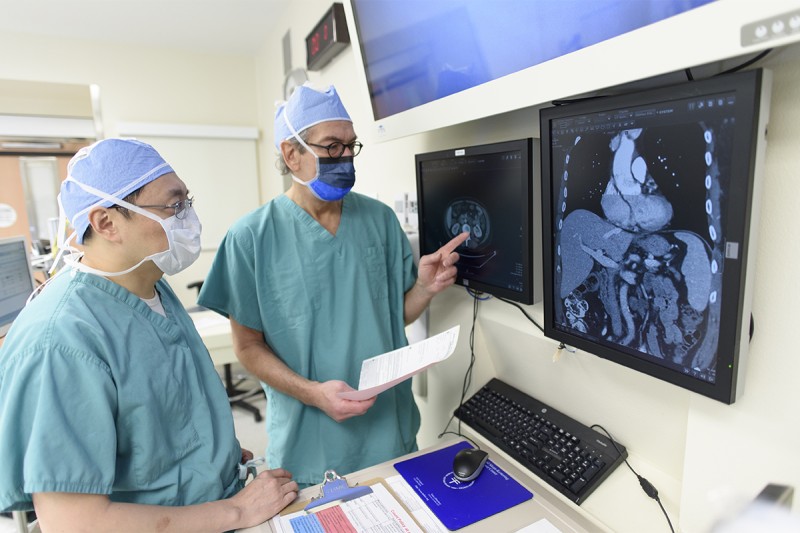
Why should I choose Memorial Sloan Kettering to treat testicular cancer?
MSK’s team of testicular cancer experts
Doctors at the Sidney Kimmel Center for Prostate and Urologic Cancers at Memorial Sloan Kettering Cancer Center (MSK) are among the nation’s most experienced in treating testicular cancer. Our doctors are part of a team that was ranked #1 in the nation for Urology Cancer Care this year by U.S. News & World Report . We care for nearly 500 people each year who were just diagnosed with this cancer.
New ways to diagnose and treat testicular cancer
We use the latest imaging and laboratory tests to diagnose the cancer. We also learn more about the tumor.
Our specialists work as a team to plan the best treatment for you. For early-stage tumors, this often includes surgery to confirm a testicular cancer diagnosis.
Sometimes surgery is the only treatment needed for seminomas and nonseminomas that have not metastasized (spread).
You also may have chemotherapy if the tumor is more advanced.
The latest testicular cancer research and clinical trials
MSK is a major research institution. During your treatment for testicular cancer, your care team may ask if you want to join a research study. These clinical trials explore new ways to treat the cancer. They may be open to people who have not started treatment yet, or who have testicular cancer that came back.
We’re also testing new ways to find and monitor cancer in our micro RNA (miRNA) research program. Tumors make miRNAs, genetic material that can be in the blood. We’re using new laboratory methods to isolate (separate) certain miRNAs for use as tumor markers. These markers can help us diagnose and treat testicular cancer.
Most people treated for testicular cancer at MSK are eligible to join this diagnostic trial. A diagnostic trial is a clinical trial studying a new way to diagnose and treat cancer.
Support during and after treatment
MSK supports long-term survivorship after your treatment and has many resources for people living with testicular cancer. We offer guidance on male sexual health and options for preserving fertility, including how to store sperm before treatment. We also can help if you’re building a family.
Follow-up care and support for testicular cancer (germ cell tumors)
After your treatment is over, your doctor may recommend you do self-exams and return for regular follow-up visits. These checkups happen more often in the 2 years after treatment, when the cancer is most likely to return.
During these checkups, your doctor will do a physical exam. They will look at the testicle that did not have cancer for lumps or anything that does not look normal.
Your doctor also will order tests to look for tumors, including:
- Blood tests (serum tumor markers)
- Regular chest X-rays, computed tomography (CT) scans, or both.
How often you have these tests depends on your risk of the cancer coming back.
Survivorship is an important part of your care during and after treatment for testicular cancer. We will assess how your health affects your quality of life.
We offer supportive care throughout your time at MSK. Lifelong surveillance (monitoring) is important for people who were treated for testicular cancer. Our doctors will follow-up with you for a long time.
Rehabilitation and exercise
Cancer treatment can change how well your body moves. Training with our physical, occupational, and exercise therapists can help bring your strength back. Our goal is to give you the same quality of life you had before cancer.
We can work with you in our gyms at convenient locations closer to home. We have outpatient locations in Manhattan, New Jersey, Westchester County, and on Long Island. Your care team also will give you exercise programs you can practice at home.
We’re available 24 hours a day, 7 days a week



